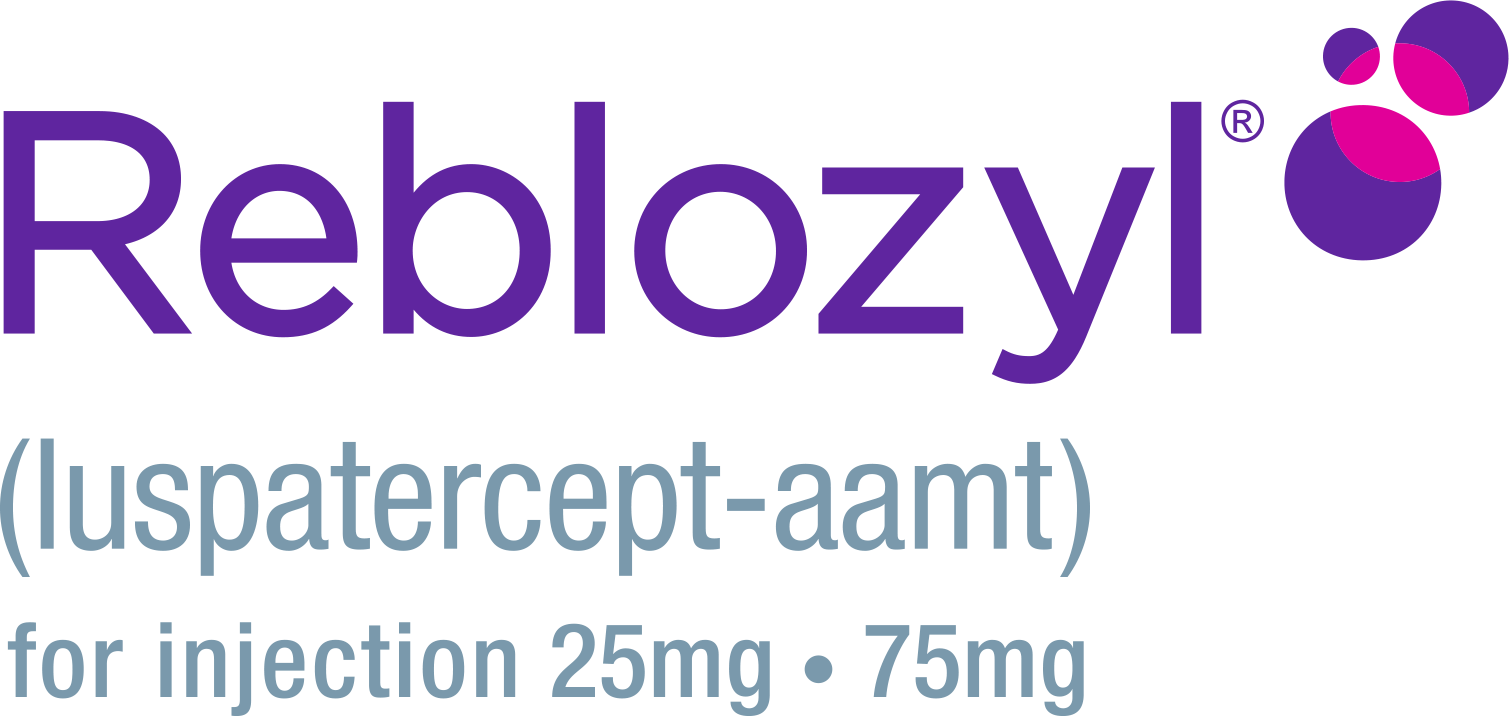How will I receive REBLOZYL?
REBLOZYL is an injection given under your skin by your healthcare team at their office

- Given in your upper arm, thigh, or stomach
- Needles used for injections that go under your skin are smaller than those used for injections that go into your muscle, such as those used for most vaccines
You will receive a REBLOZYL injection once every 3 weeks.
Before each REBLOZYL injection, your healthcare team will:

Do a blood test to check your hemoglobin (Hgb) levels

Discuss the number of transfusions you’ve had since your last REBLOZYL dose
Your healthcare team may also talk about any symptoms you’ve been having. This information helps your healthcare team see how your anemia is responding to REBLOZYL. It’s important to talk about how you’re feeling with your healthcare team to help them understand how you’re doing and if you’re meeting your treatment goals.

What if I miss a dose?
Sometimes things come up and you are unable to make a scheduled doctor’s appointment. If your scheduled REBLOZYL dose is delayed or missed, call your healthcare team as soon as possible to reschedule your next appointment. Your doctor will give you your dose of REBLOZYL as soon as possible. Your treatment with REBLOZYL will continue as prescribed, with at least 3 weeks between doses.
Will my REBLOZYL dose and length of treatment be the same as other patients?

Length of treatment
The length of treatment varies from person to person. As part of ongoing treatment, your doctor may adjust the dose from time to time. You’ll stay on treatment with REBLOZYL for as long as you are responding to it and your side effects are manageable.

Starting dose
Your doctor will decide what dose of REBLOZYL is right for you based on your weight. It is recommended that people receiving REBLOZYL start on 1 milligram (mg)/kilogram (kg), once every 3 weeks. Your dose may go up. You and your healthcare team can work together to see what REBLOZYL dose works for you.

Finding the right dose
Based on how REBLOZYL was studied, many patients experienced at least one dose modification. An increase in your dose of REBLOZYL does not necessarily mean REBLOZYL isn’t working for you. You may actually just need a higher dose to get the response you and your healthcare team are looking for. That’s why it can be helpful to be aware of your dose and to track your symptoms and any transfusions you need between doses.
You may want to write down when you receive red blood cell (RBC) transfusions and any symptoms you feel between doses of REBLOZYL.
Understanding your transfusion burden will help your healthcare team understand if you need an increase in dose to meet your treatment goals.
How will I know if I need to pause or stop receiving REBLOZYL?

Your dose may be adjusted, paused, or discontinued based on how you are responding to REBLOZYL treatment, including side effects. If your Hgb levels are too high or rise too fast, your doctor may pause your REBLOZYL treatment.

Your healthcare team will continue to monitor your Hgb levels to see what next steps make the most sense. Based on ongoing blood test results and checking your Hgb levels, your doctor may decide to restart REBLOZYL treatment at some point in the future.

If there is no reduction in RBC transfusions after at least 3 doses on the maximum dosage of 1.25 mg/kg, your doctor will stop REBLOZYL treatment.


